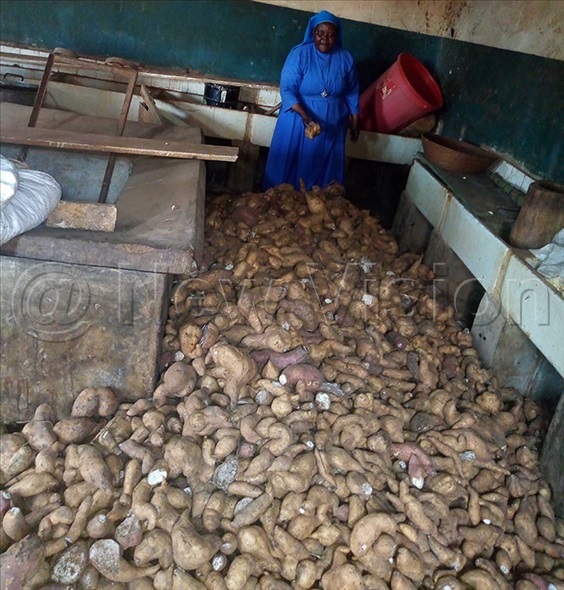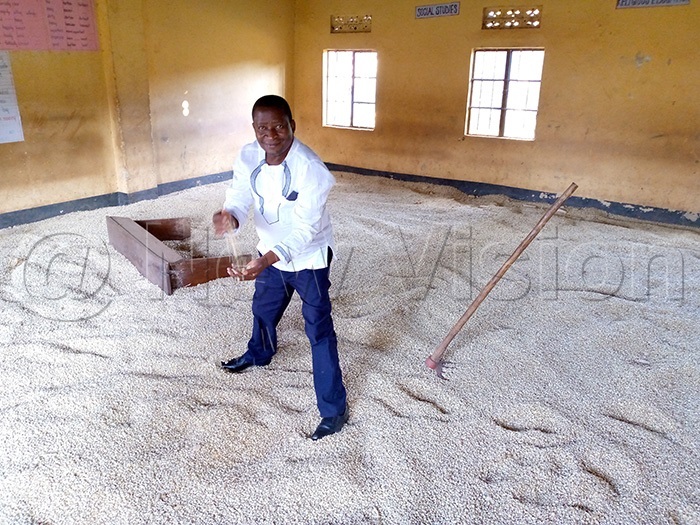More schools growing own food to save on costs
This has implications for cognitive development, school performance, and achievement (National Planning Authority Report, 2017).
EDUCATION|FEEDING|AGRIBUSINESS
Up to eight million children attend school in Uganda, however, the largest proportion goes hungry, with only 33% of the children receiving meals at school.
This has implications for cognitive development, school performance, and achievement (National Planning Authority Report, 2017).
According to a 2014 report from the Uganda Bureau of Statistics, 66% of learners at primary level were not feeding at school.
Additionally, in one of the Cabinet memos, the Ministry of Education and Sports (MoES) stated that hunger is one of the main reasons children perform poorly in Universal Primary Education (UPE) schools.
It noted that hungry children have poor concentration and mental abilities, absenteeism, bad behavior, poor health and end up dropping out of school.
It is for this reason that many schools have come up with innovative ways of feeding children at school with many of them opting to utilise the schools' vast lands to grow their own food.
Sr. Teopista Namukasa, the headteacher of St Mary Immaculate Boarding Primary school in Kalungu district says the school grows up to 50% of the school's food requirements to save on costs.
The school has eight acres of maize, three acres of beans, and five acres of banana plantation. She also hired land and put up a five-acre garden of potatoes and cassava.

"We also grow eggplants as well as cabbages on an acre of land on top of cattle rearing from which we get milk. We have also set up a piggery project from which we sell pigs to supplement the school income," Sr. Namukasa says.
The school also has a quarter acre of passion fruits from which they get fruits. Apart from cutting on costs, these ventures are also used for study purposes.
Just like Namukasa, Tom Kayira, the headteacher of Kisowera Primary School, a government aided universal primary school has also ensured that the school grows over 50% of its food requirements; the school for example grows maize, beans, and sweet potatoes.
"We are working with a community that is poverty stricken and until you are innovative enough, there is little you can achieve especially when you are banking on parents' contributions," says Kayiira.
According to Kayiira, parents pay a small feeding fee, but even then, many pay late when the school term is almost ending, making it hard for the school to sustainably buy food for feeding.

But with the school growing a huge chunk of its food requirements, it becomes cheaper hence enabling the school to maintain its feeding schedule.
At Kawuku Primary School, Fredrick Ssenfuma Kabonge is growing maize on five acres and potatoes on three acres.
"Because we grow our food, we ask for very little and affordable money from the parents for feeding, and because we feed our pupils, our academic performance has been improving for the better," says Kabonge.
Because the school grows its food, during the Covid-19 lockdown, Kabonge was able to support his teachers by giving them food from the school garden to manage the pandemic.
"At the time of closure, we had five bags of posho and 2 bags of beans in the store; I shared it amongst my teachers. The maize has been also harvested, milled, and shared amongst the teachers. The same was done for the potatoes," says Kabonge.